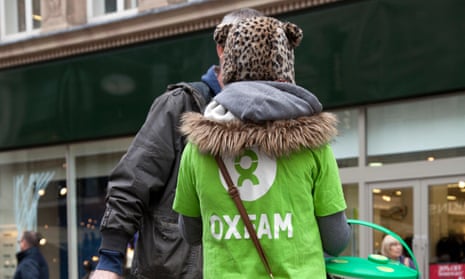Public trust in charities in England and Wales has fallen to the lowest recorded level since monitoring began in 2005, in the wake of a series of high-profile scandals.
Research for the Charity Commission found that people were increasingly concerned about how charities spend their money and perceived aggressive fundraising techniques.
The main reason given for trusting charities less, cited by 33% of people questioned, was media coverage. Stories to have hit the headlines since the last survey, two years ago, include the collapse of Kid’s Company amid allegations of financial mismanagement, and the suicide of Olive Cooke, believed to have received almost 3,000 mailings from charities in a year.
Another controversy concerned Age UK’s deal to help market an E.ON energy tariff to older people, for which it received £6m in commission.
Such stories have contributed to charities’ trust rating declining to 57%, from 67% in 2014.
In an article for the Guardian, the Charity Commission’s chairman, William Shawcross, said the decline was not as big as some had feared but was still “a wake-up call for everyone who supports charity in this country”.
He said: “Poor fundraising practice, inappropriate data sharing, damaging commercial relationships [and] the high-profile collapse of Kids Company have all combined to knock the public’s confidence in charity.
“As long as there is a cloud over the sector, charities will struggle to be persuasive over high salaries for high-skilled staff, seemingly large fundraising costs and low charitable expenditure.”
The research by Populus is based on a survey of a representative sample of more than 1,000 people, as well as focus group discussions. It found that 67% of people thought charities spend too much on salaries and administration and 74% felt uncomfortable about some fundraising methods, up from 58% and 66% in 2014 respectively.
This year MPs on the public administration committee warned charity bosses who allowed dubious fundraising practices that they were on their last chance to “put their house in order”.
Shawcross said: “The public wants to see charities account better for how they spend their money, they want to see ethical fundraising, and they want to know that charities are making a positive difference to their causes.”
He said some charities were already taking steps to address the decline in confidence, adding: “The role of charity will be vital to healing the divisions exposed by Thursday’s [Brexit] vote.”
Nine in 10 people surveyed said charities played a role of either fair, high or essential importance. They were more likely to trust small charities (57%) over large ones (34%), and charities that operate solely in the UK (61%) over those that operate internationally (31%). Trust in the commission itself fell from 60% to 55%.
Asheem Singh, interim chief executive of the charity leaders network Acevo, said: “In the last week public-facing institutions got a kicking and it is no surprise given the media stories of the previous year that trust in charities, and indeed the Charity Commission, has fallen.
“Yes, there have been examples of egregious bad practice, but the damage done to the sector by these examples of bad practice must be balanced by the vast amount of energy, commitment, inspiration and sheer slog put in by the vast amount of charities and good causes of all shapes and size.”
Sir Stuart Etherington, chief executive of the National Council for Voluntary Organisations, said charities have taken a number of steps to restore confidence, including establishing a fundraising regulator, making it easier for people to opt out of mailings or call lists and improving governance.
“Charities are well aware they have a significant responsibility in society, and they want to ensure that they live up to the standards that the public rightly expect of them,” he said.
